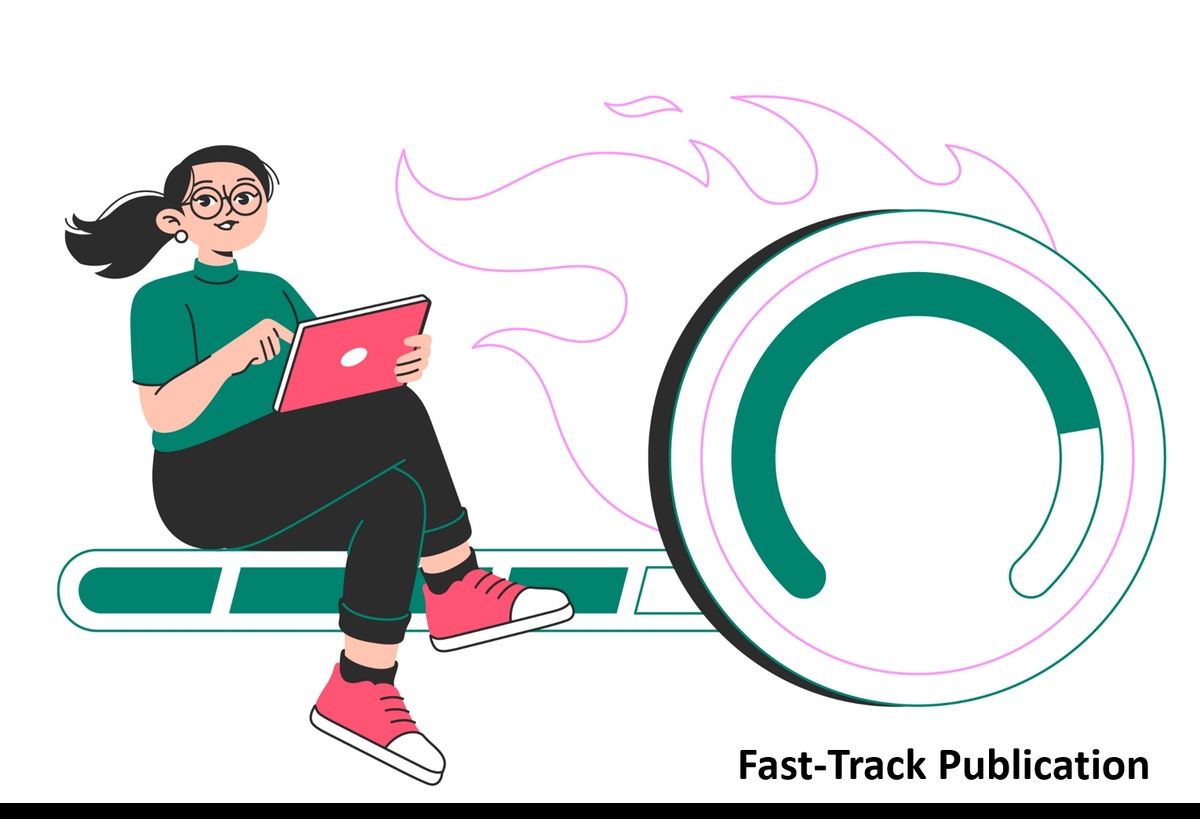How Can You Fast-Track Your Research Paper Publication?


Publishing a research paper is an important step for any researcher or student. But sometimes, the process can take a long time—often several months or even over a year. This delay can be frustrating, especially if you need to publish quickly for a deadline or career reasons.
Luckily, many journals now offer fast-track publication options. These options allow your paper to be reviewed and published faster than usual. But how does this work? And how can you make sure your paper gets published quickly? In this article, we will answer these questions and share useful tips to help you fast-track your research paper publication.

Fast-track publication is a way to speed up the review and publishing process in some journals. When you choose this option, your paper is given priority, meaning it is reviewed and processed faster than normal. This allows important research to be shared quickly with the academic community.
Fast-track does not mean your paper will skip the review process — it still undergoes peer review to make sure it meets quality standards. But the reviewers and editors work on it faster, so you get decisions and publication sooner.
Yes, it is possible. Fast-track journals aim to reduce the time from submission to publication from several months to just a few weeks. Some journals even promise decisions within 3 to 6 weeks.
However, the speed depends on several things:
How quickly reviewers respond
The quality and readiness of your paper
How fast you respond to revision requests
So, while fast-track speeds things up, you still need to prepare well and stay active in the process.

Normally, the publishing process can take anywhere from 3 to 9 months or longer. With fast-track, it may take just 3 to 6 weeks.
Here’s a simple comparison:
Stage | Normal Publishing | Fast-Track Publishing |
Initial Review | 1-4 weeks | 1-3 days |
Peer Review | 4-12 weeks | 1-3 weeks |
Revisions | 2-8 weeks | 1-2 weeks |
Final Decision | 1-4 weeks | A few days |
Publication | 2-8 weeks | 1-2 weeks |
This means your paper moves through all steps much faster with fast-track.
Not all journals offer fast-track options. Here’s how you can find them:
Check the journal’s website: Look under “For Authors” or “Submission Guidelines” for fast-track or rapid review options.
Contact the editorial office: Send an email asking if fast-track is available.
Search online: Some publishers list journals with fast-track services.
Ask colleagues or on research forums: Other researchers may know which journals offer fast-track.
Fast-track options are common in fields where research needs to be shared quickly, such as medicine, health sciences, engineering, and technology. Examples include:
Medical journals like The Lancet and BMJ Open
Engineering journals under IEEE
Multidisciplinary journals like Scientific Reports
Many open access journals offer fast-track for a fee
Always check with the specific journal about their fast-track policies.

Speed: Get your research published quickly.
Career growth: Meet deadlines for grants, job applications, or thesis defense.
Visibility: Share your findings with others sooner.
Priority: Your paper gets special attention from editors and reviewers.
Cost: Fast-track often requires extra fees.
Pressure: Shorter deadlines for revisions can be stressful.
No guaranteed acceptance: Fast-track means faster review, not guaranteed publication.
Quality risk: Sometimes the review may be less detailed because of the speed.

Prepare a high-quality manuscript before submission.
Follow the journal’s formatting and submission guidelines carefully.
Respond quickly and clearly to reviewers’ comments.
Consider using professional editing or translation services if needed.
Choose journals that match your research topic and have good reputations.
Fast-track publication is a great option if you want to share your research faster. By choosing the right journals, preparing your manuscript well, and staying responsive during review, you can reduce the time it takes to publish your work.
Remember, quality should never be sacrificed for speed. Use fast-track options wisely to boost your academic career and make your research accessible sooner.
If you need fast acceptance and publication of your article in Scopus, Web of Science or PubMed journals, SITA Academy can help. With years of experience, we offer free advice on the best journals for your work and handle the entire process to get your article published as quickly as possible.
You can easily send your article file online to one of our experts, and they will start the fast-track publication process right away.
All fees you pay through us are the official fees set by the journals.
For more information about fast acceptance and publication in Scopus journals, you can contact our team by email, or through WhatsApp, Instagram, and Telegram. You can also place your order directly using the link below.
If you have any questions, inquiries, or would like to learn more about our services, please don't hesitate to reach out to us. Our dedicated team is ready to assist you.